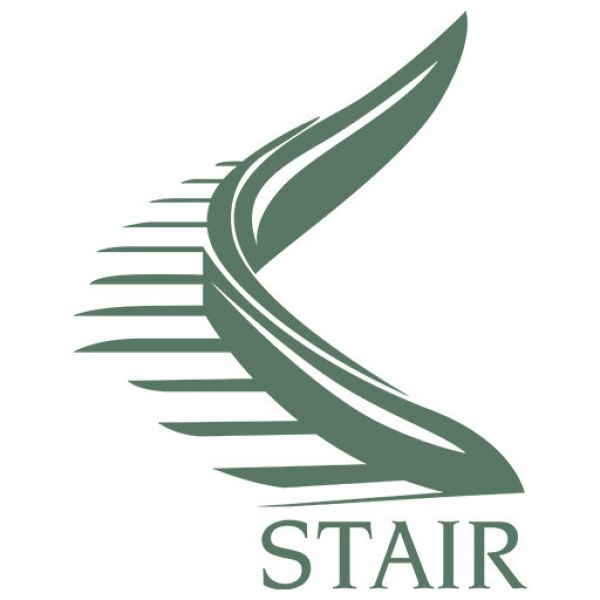Dec 17, 2024
New program aims to transform research administration with $5.1M NSF grant
The National Science Foundation (NSF) has awarded $5.1 million to support the Skilled Training in Administration and Institutional Research (STAIR) program, a national initiative designed to revolutionize research administration across U.S. academic institutions.

The Huck Institutes of the Life Sciences at Penn State is proud to announce a transformative milestone in research administration. The National Science Foundation (NSF) has awarded $5.1 million to support the Skilled Training in Administration and Institutional Research (STAIR) program, a national initiative designed to revolutionize research administration across U.S. academic institutions. This award underscores Penn State’s commitment to fostering impactful interdisciplinary research and strengthening the national research ecosystem.
“I feel like this award validates all of the quality work we’ve done over the years to develop high-quality research administration content at Penn State,” said Dr. John Hanold, associate vice president for research and director of the Office of Research Administration Services at Penn State. “We’ve been developing and refining the ACES class for 19 years now, and we believe it compares favorably to any of the training programs offered by our peers. It’s even more exciting that we’ll now be able to leverage all this fine work to provide a service that should benefit minority-serving institutions and emerging research institutions across the country.”
A Visionary Leadership Team
The STAIR program is led by Principal Investigator Dr. Camelia Kantor, Associate Director for Strategic Initiatives at the Huck Institutes. Joining her are co-principal investigators:
· Dr. Zoubeida Ounaies, Professor of Mechanical Engineering and Associate Director of the Materials Research Institute
· Emily Martell, Managing Director at the Huck Institutes
· Diane Rudy, Associate Director of Pre-Award Research Administration at the Strategic Interdisciplinary Research Office (SIRO)
“As a research administrator, I’ve spent my career supporting faculty in developing and managing their research projects,” said Diane Rudy. “Being a co-PI on the STAIR program is an extraordinary opportunity to step into a role that is traditionally reserved for faculty. It allows me to bring the perspective of those who work behind the scenes to the forefront, shaping a program that empowers both research administrators and faculty as collaborators. I’m excited to contribute to a project that builds the skills and partnerships needed to create a stronger, more cohesive research ecosystem.”
This leadership team is supported by a diverse coalition of faculty and research administrators from multiple Penn State units and over 20 institutions nationwide,
including Primarily Undergraduate Institutions (PUIs) and Minority Serving Institutions (MSIs).
Key Penn State collaborators include:
· The Strategic Interdisciplinary Research Office (SIRO)
· The Office of Research Protections
· The Office of Research Administration Services
· The Applied Research Laboratory
· The Materials Research Institute
· Colleges of Engineering, Agriculture, Eberly College, Health & Human Development, and Earth & Mineral Sciences
Expanding Expertise and Capacity
STAIR’s success is built on the collaborative expertise of its core team and partners, which include subject matter experts from Penn State and external institutions. A dedicated project manager, grant writers, and faculty mentors further enhance the program’s capacity to deliver tailored professional development and consulting services. Each year, STAIR will provide over 2,900 hours of consulting, along with modular curriculum training, to its partner institutions.
“Getting research done doesn’t just require lab space, there is a lot of administrative infrastructure that is needed as well,” said Dr. Patrick Drew, interim director of the Huck Institutes. “Penn State has some fantastic research administrative teams, and we are excited to work with other collaborating institutions to help them build their capacity. We are very thankful to get this support from the NSF to help raise the research capabilities of institutions across the country.”
Modular Curriculum for a Diverse Audience
Building on the success of Penn State’s ACOR Certification & Education Series (ACES), the STAIR program reimagines training as a modular, open-access curriculum. The program’s offerings include:
· Professional development tailored to research administrators and early-career faculty
· Training in proposal development, compliance, and post-award management
· Resources to enhance institutional capacity and secure research funding
By expanding access to these critical resources, STAIR aims to foster collaborative research efforts and strengthen institutional capacity at partner institutions.
“The STAIR program is unique in its approach to democratizing access to research administration knowledge by bringing faculty and research administrators together as equal partners in building and sustaining successful research infrastructures,” said Camelia Kantor, associate director of strategic initiatives at the Huck Institutes.
“By fostering cross-unit and cross-institutional collaboration, teamwork, and skill-building, STAIR creates a foundation where both groups can thrive as co-creators of impactful research and innovation. We are deeply grateful to the National Science Foundation for recognizing the importance of this work and supporting our vision to strengthen research ecosystems across the nation.”
A Transformative Commitment
This four-year NSF award represents a fiscal commitment of more than $4 million for 2025–2028, with a total funding amount of $5.1 million. The Huck Institutes is proud to lead this transformative initiative, which will expand access to research opportunities, build institutional capacity, and cultivate a diverse and inclusive research ecosystem.
Looking Ahead
The STAIR program embodies the Huck Institutes’ mission to drive innovation through collaboration. With tailored training, expansive partnerships, and a reimagined curriculum, the program is poised to make a lasting impact on the research community. We look forward to sharing milestones from STAIR and celebrating its contributions to science, education, and society in the years to come.